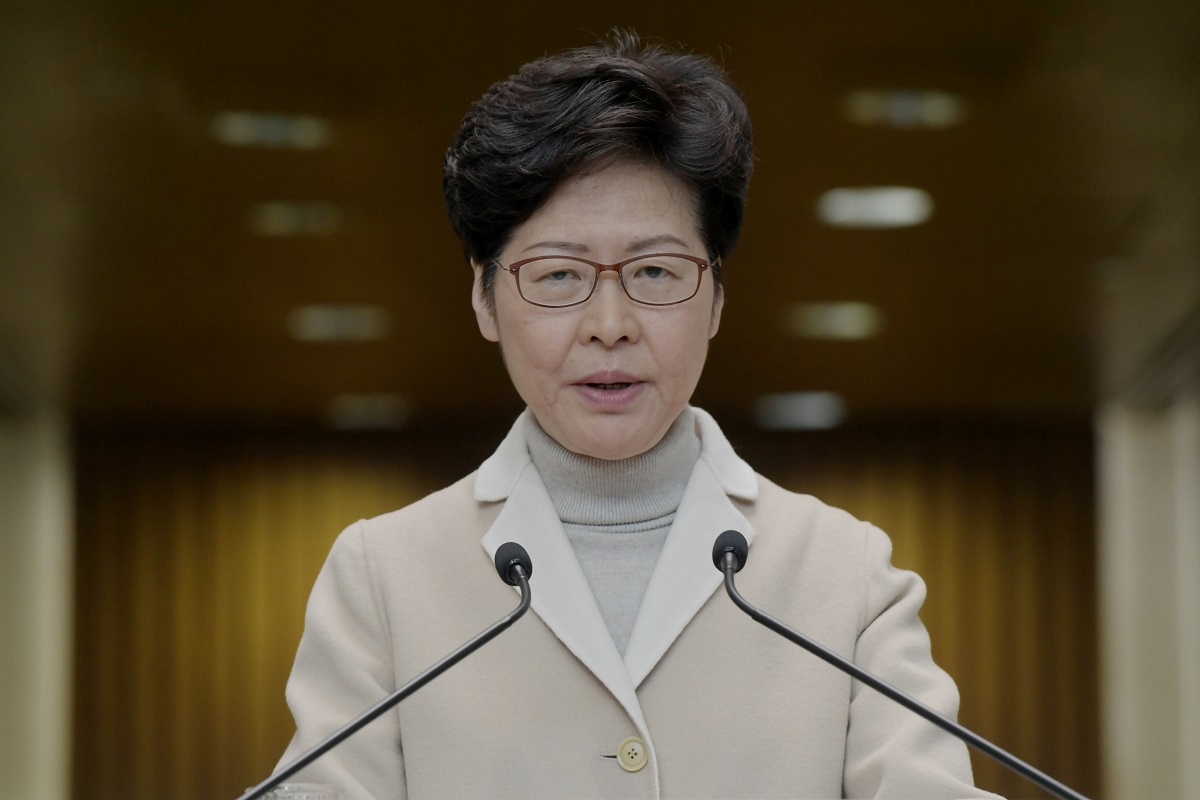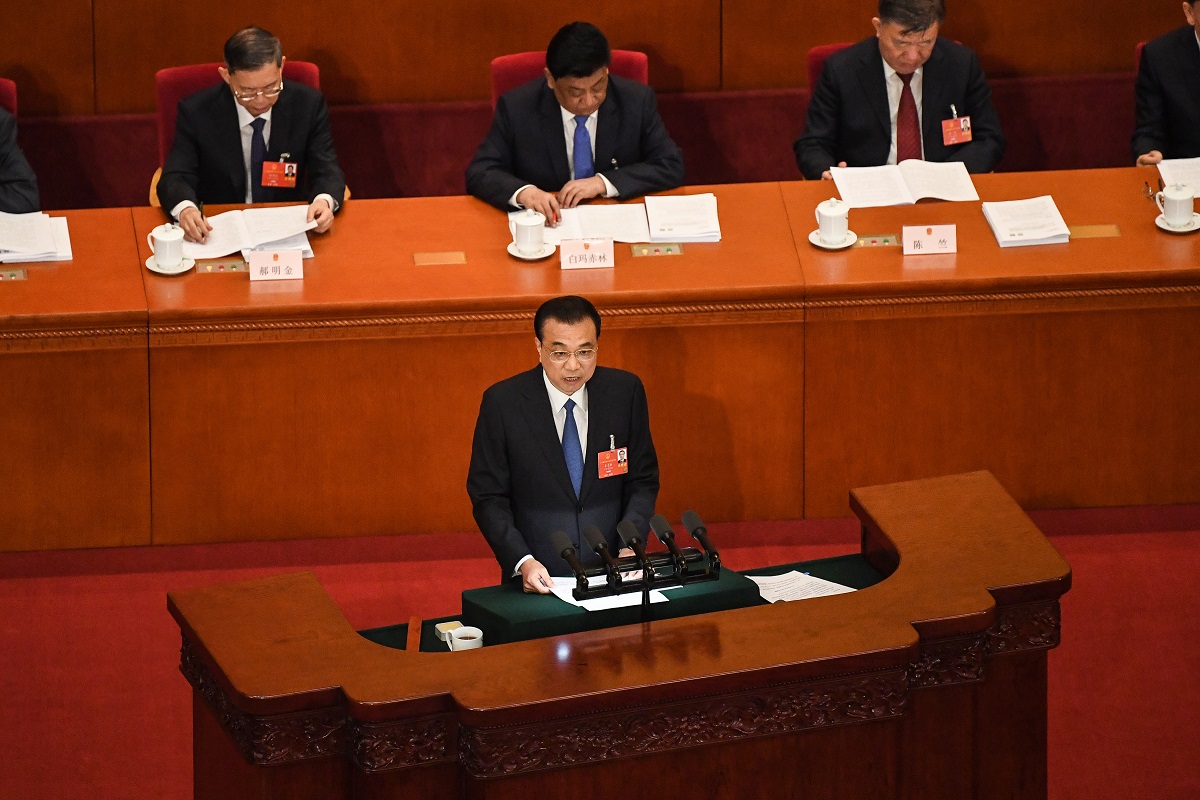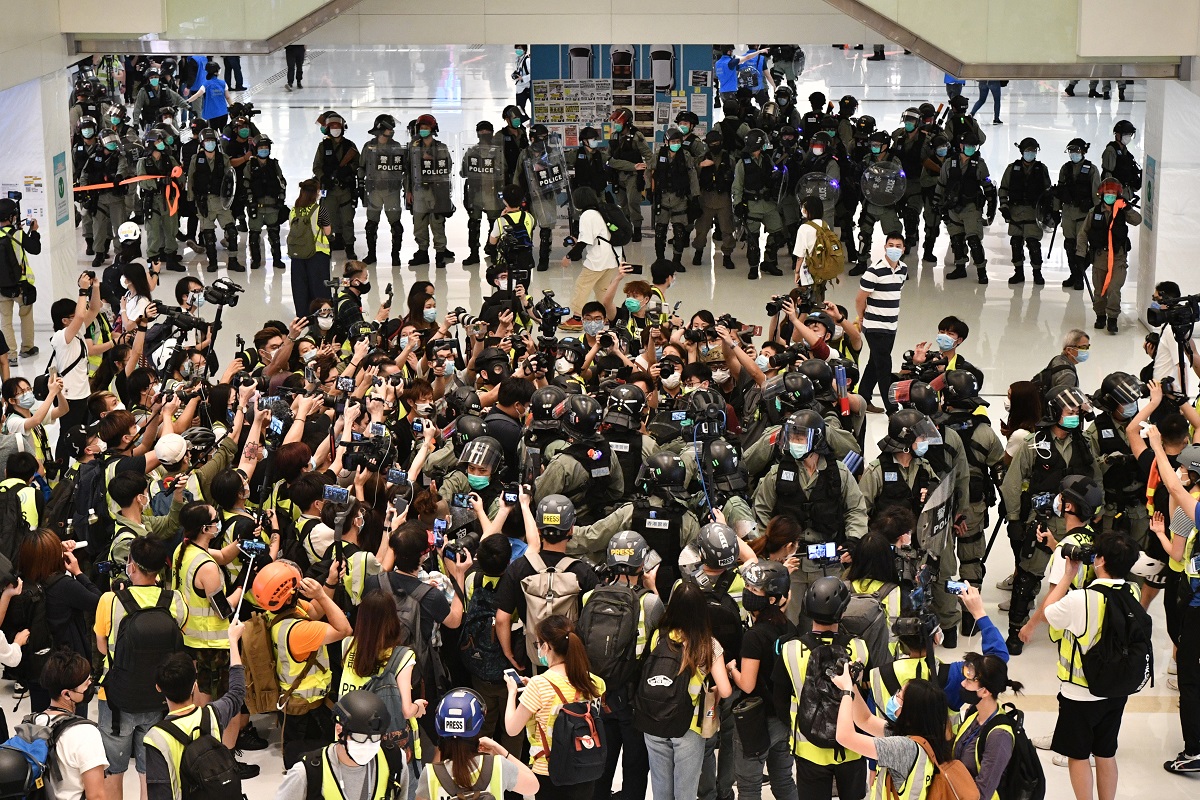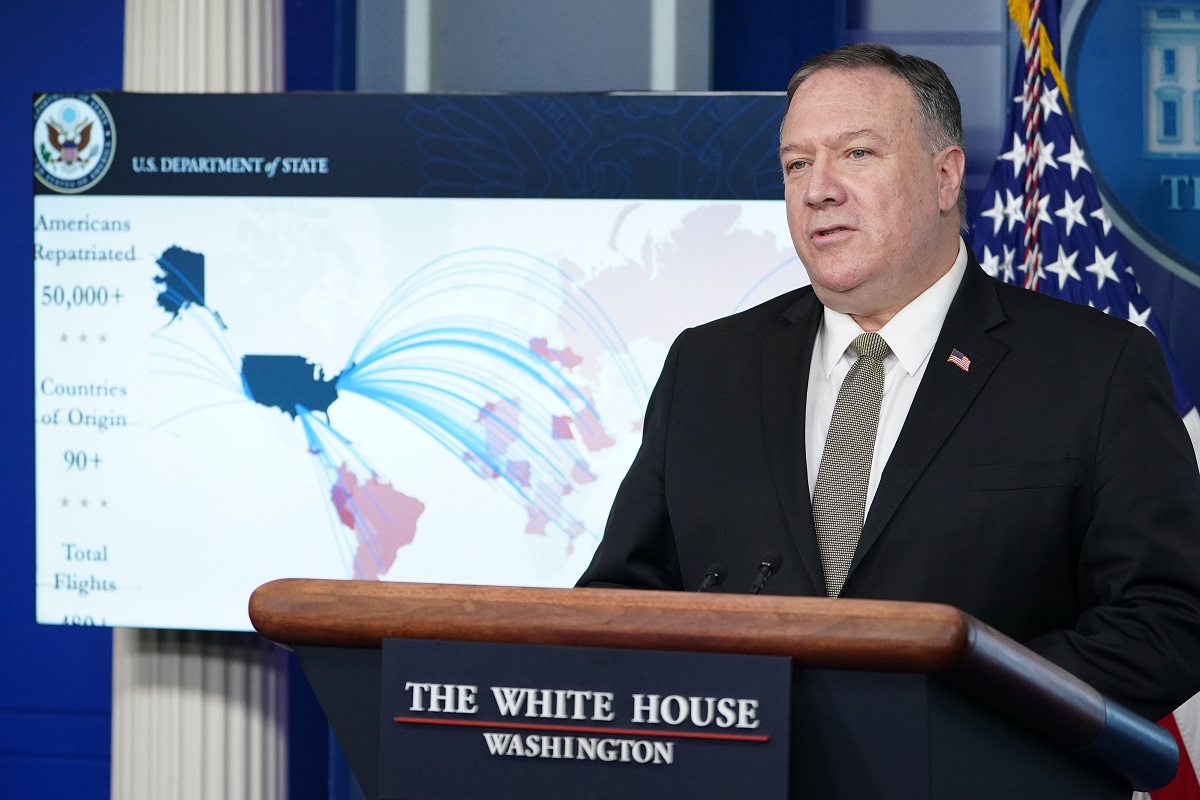Hong Kong leader Carrie Lam urges oppn not to ‘demonise’ security law
The law Beijing is imposing on Hong Kong aims to prevent, stop and punish secession, subversion of state power, terrorism and foreign interference in the city.

The law Beijing is imposing on Hong Kong aims to prevent, stop and punish secession, subversion of state power, terrorism and foreign interference in the city.

The massive violent protests in Hong Kong started last year in June against proposals to allow extradition to mainland China, a move many feared would undermine the city’s judicial independence and endanger dissidents.

Police arrested more than 230 people on Sunday night following protests across the city.

The appeal for flash mobs came after police denied unions permission to stage their traditional Labour Day rallies, citing risks to public health.

The arrests of the 15 were for their roles in the protests in August and October that were part of an anti-government movement that was sparked by the aborted extradition bill.
Two former pro-democracy politicians, Yeung Sum and Lee Cheuk-yan were also arrested on Friday morning, according to state news outlet RTHK.
On Wednesday, an investigation was launched but no arrests have been made so far.
The island's legislature has 113 seats, including 73 directly elected regional seats.
The Liaison Office, whose director is the highest-ranking Chinese political official in Hong Kong, was targeted in July by protesters throwing eggs and graffitiing the building.
Demonstrators came out en masse on Wednesday for the march organizers had to eventually cancel following police orders, that later led to clashes between officers and the more radical protesters.